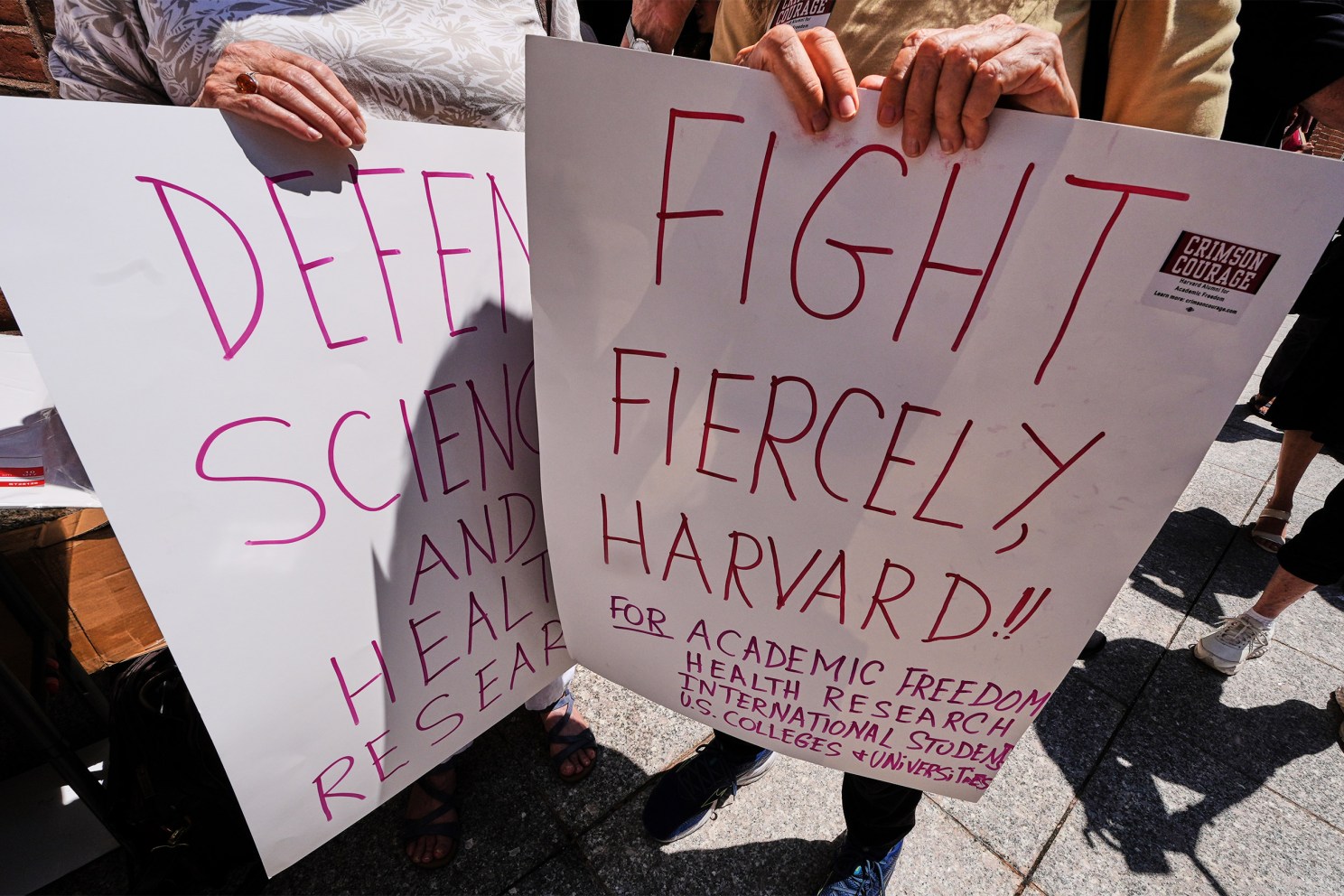Harvard seeks restoration of research funds

Protesters gathered outside the Moakley Federal Courthouse in Boston on Monday, where Harvard challenged the Trump administration’s termination of billions in research funding.
Charles Krupa/AP Photo
University argues Trump administration violated free speech rights, ignored procedural provisions in federal court hearing
Harvard argued in federal court in Boston on Monday that the Trump administration’s move to terminate billions of dollars in research funding to the University was unconstitutional and violated procedural provisions in civil rights and administrative laws.
The 2½-hour hearing, before U.S. District Judge Allison Burroughs, brought together attorneys from Harvard, the Justice Department, and the American Association of University Professors, which has also sued the government for its abrupt cancellation of research funding, on behalf of Harvard faculty members.
During the proceeding, Burroughs spent significant time questioning Justice Department senior attorney Michael Velchik about several topics, including the administration’s contention that it has the right to halt funding at any time due to contractual terms and probing the link between that ability and free speech issues.
“If you can make decisions for reasons oriented around free speech, the consequences of that are staggering to me,” Burroughs said.
The Trump administration has cited campus antisemitism in its actions against Harvard. The University’s attorney, Steven Lehotsky, argued that the government has sought to coerce Harvard to give up its autonomy through a series of demands that extend beyond fighting antisemitism.
He noted that the demands include audits of viewpoint diversity among students and faculty and changes to admissions and hiring practices. Those demands amount to a violation of academic freedom and the University’s First Amendment guarantees of free speech, he argued.
“This is a blatant, unrepentant violation of the First Amendment,” Lehotsky said.
In addition, Lehotsky argued that the government’s actions violate procedural provisions in Title VI of the Civil Rights Act of 1964, which require that an investigation be conducted, a hearing held, and findings released before funding is withdrawn.
The government did not engage in a reasoned decision-making process that took into account the interests of those who stand to benefit from academic and medical research, the general public, and others affected by research funding cutoffs, he said.
Making the case for the Trump administration, Velchik shifted the focus of the government’s argument, which previously centered claims of an inadequate response to incidents of antisemitism. Rather, Velchik said, the dispute is about money: Harvard wants billions in research dollars restored, and the government is within its rights to decide where it wants those funds to go.
The government’s disagreement with Harvard is at its core a contract dispute, he argued, and government contracts contain language that says funding can be withdrawn at any time.
All sides requested summary judgment in the case, which avoids a lengthy trial. Burroughs said she would work as quickly as possible but did not set a deadline for a ruling.




